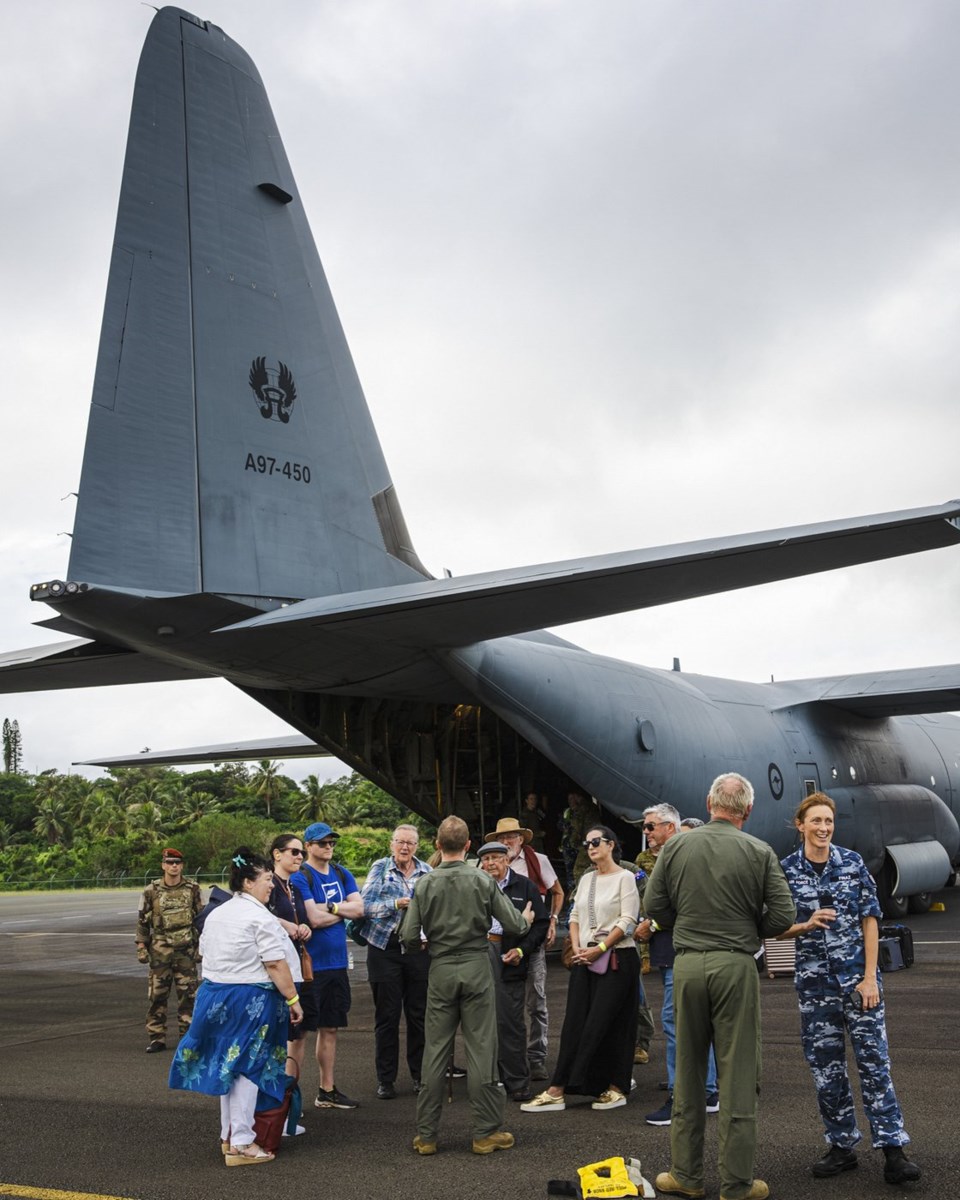PARIS (AP) — French President Emmanuel Macron is making a surprise trip to New Caledonia, the French Pacific territory that has been gripped by days of deadly unrest and where indigenous people have long sought independence.
“He will go there tonight,” government spokesperson Prisca Thevenot said after a Cabinet meeting on Tuesday where the president said he'd decided to make the more than 33,000-kilometer (20,000-mile) round trip himself to the archipelago east of Australia.
Six people have been killed, including two gendarmes, and hundreds of others injured in New Caledonia during armed clashes, looting and arson, raising new questions about Macron's handling of France's colonial legacy.
There have been decades of tensions between indigenous Kanaks who seek independence for the archipelago of 270,000 people, and descendants of colonizers and others who have settled on the island and who want to remain part of France.
The unrest erupted May 13 as the French legislature in Paris debated amending the French Constitution to make changes to New Caledonia voter lists. Opponents fear the measure will benefit pro-France politicians in New Caledonia and further marginalize Kanaks who once suffered from strict segregation policies and widespread discrimination.
The violence is the most severe to shake New Caledonia since the 1980s, when France also imposed emergency measures on the island that became French in 1853 under Emperor Napoleon III.
Paris last Wednesday declared a 12-day minimum state of emergency on the island and rushed in 1,000 reinforcements to bolster security forces that lost control of parts of the capital, Nouméa.
“Faced with the outbreak of violence, the priority is the return of order to allow dialogue to resume in New Caledonia," Thevenot, the government spokeswoman, said. “We are clear: Much remains to be done before the return to normal. The government is fully mobilized."
Leaving Tuesday night will, because of the distance and time difference, see Macron arrive Thursday morning in New Caledonia, his office said. It said he is expected to stay for one day.
Macron will meet with political, business, civic and youth leaders and aim to “renew the thread of dialogue" in search of “a comprehensive political agreement,” Prime Minister Gabriel Attal told parliament, where lawmakers stood for a moment of silence for the six people killed in the violence.
Interior Minister Gerald Darmanin said he'll join Macron, along with the ministers for defense and for France's overseas territories. The visit will give Macron and his ministers a first-hand look at some of the destruction that turned parts of Nouméa into no-go zones, with buildings torched, shops pillaged and barricades erected both by pro-independence supporters, some armed, and people banding together to protect livelihoods and homes.
With police given emergency powers and a 6 p.m. to 6 a.m. curfew in effect, French authorities say security forces are starting to contain unrest. They announced another 22 arrests Tuesday for a total number near 300.
The violence in New Caledonia has led to fresh discussion about France’s colonial past. Macron’s efforts to address that have largely focused on Africa, where France had colonies and where local frustration in some countries has led to recent calls for French forces to get out.
A priority for French authorities in New Caledonia since the weekend has been clearing the highway to Nouméa's international airport of barricades and the burned hulks of vehicles, raising the prospect for stranded tourists of being able to leave.
Australia and New Zealand sent planes to New Caledonia on Tuesday to begin bringing citizens home. Australian Foreign Minister Penny Wong said Australia received clearance from French authorities for two evacuation flights and would work on further ones.
Australia's Department of Foreign Affairs said 300 Australians were in New Caledonia. It did not immediately confirm whether the flights would evacuate other stranded foreign nationals, believed to number in the thousands.
New Zealand’s government announced an evacuation effort for about 50 citizens.
“New Zealanders in New Caledonia have faced a challenging few days — and bringing them home has been an urgent priority for the government,” Foreign Affairs Minister Winston Peters said. “In cooperation with France and Australia, we are working on subsequent flights in coming days.”
___
Leicester reported from Le Pecq, France, and Smith from Newcastle, Australia.
Catherine Gaschka, John Leicester And Keiran Smith, The Associated Press


